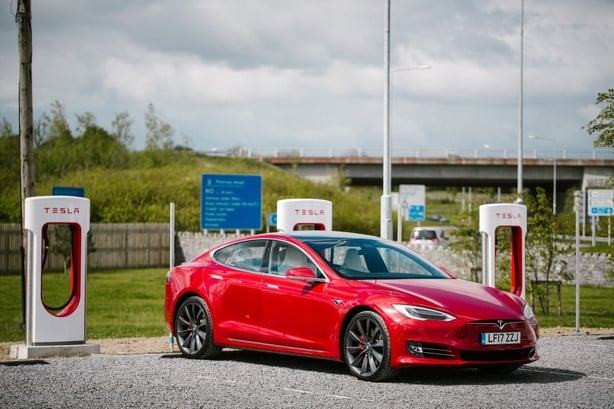Professor Tony Seba doesn't mince his words when talking about the end of petrol and diesel. Conventional transport - from cars to buses and trucks - is facing a tsunami of change and by 2025 everything on four wheels will be electrically-powered, he argues.
He also predicts that there will be a "mass-stranding of existing vehicles", that the value of second-hand cars will plummet, that people will have to pay to get rid of their cars and that by 2024 there won't be any car dealers in business anymore. The latter claim seems well justified by the decision of Tesla not to have any dealers but to sell directly to customers.
"It's the end of energy and transportation as we know it, and it's coming very quickly," Mr Seba told investors in Australia recently. He went on to say this revolution will "be over by 2030" and likened it to the move from horse-drawn carriages in the early 20th century.

Professor Tony Seba of Stanford University.
The renowned Stanford university guru isn't just an academic and champion of green energy. He is also an advisor to some of the world's biggest companies and has worked with Google and many other Silicon Valley entities. His advice is sought by governments and investors alike and his predictions are contained in a report titled: "Rethinking Transportation 2020-2030"
The Daily Telegraph recently reported him as stating in his report that people will stop driving altogether - something that is not inconceivable when you look at the rapid pace of development of autonomous driving cars by car companies.
He says the coming revolution is down to key factors, including solar power, increased battery storage, electric vehicle development and self-driving cars.
His report argues that the "tipping point will arrive over the next two to three years as electric vehicle battery ranges surpass 200 miles and electric car prices in the US drop to US$30,000. By 2022 the low-end models will be down to US$20,000. After that, the avalanche will sweep all before it."

"What the cost curve says is that by 2025 all new vehicles will be electric, all new buses, all new cars, all new tractors, all new vans, anything that moves on wheels will be electric, globally".
He said the "residual stock of fossil-based vehicles will take time to clear but 95 per cent of the kilometres driven by 2030 in the US will be in autonomous electric vehicles for reasons of costs, convenience, and efficiency. Oil use for road transport will crash from 8 million barrels a day to 1 million.
He argues the cost per mile for EVs will be 6.8 cents, rendering petrol cars obsolete. Insurance costs will fall by 90 per cent. The average American household will save US $5600 per year by making the switch. The US government will lose US$ 50bn a year in fuel taxes.
"Our research and modelling indicate that the US $10 trillion annual revenues in the existing vehicle and oil supply chains will shrink dramatically," he says.
Another world expert on the oil industry, Professor Dieter Helm of Oxford University, also told the Telegraph that the end of the big oil business has "just started". He argues that demand for electric vehicles will soar and this will have a huge effect on an already declining oil market.


